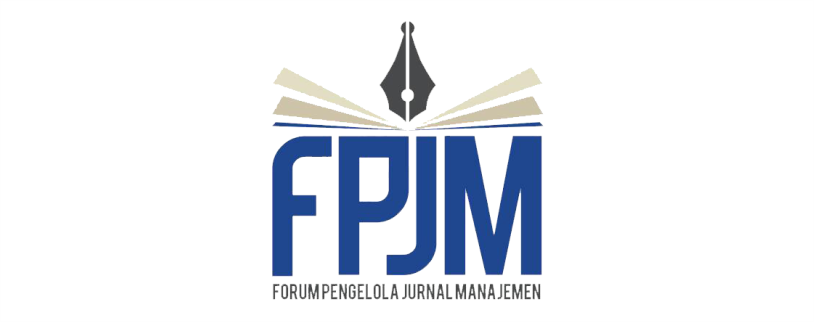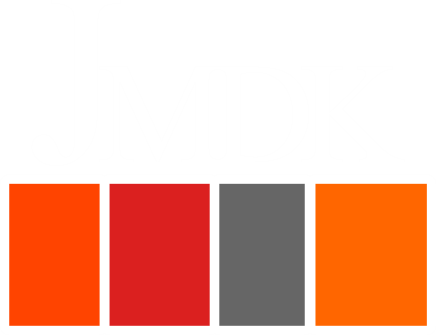The Impact of Information Sharing on Supply Chain Performance Mediated by Company Relationships
DOI:
https://doi.org/10.26905/jmdk.v11i1.10029Keywords:
Company Relationships, Information Sharing, MSMEs, Supply Chain Performance.Abstract
MSMEs are the backbone of the Indonesian economy, because they contribute greatly to Indonesia's economic growth. MSMEs snacks have a broad market potential due to increasing public demand and a large variety of products. However, they are still faced with various challenges in terms of supply, such as price volatility of raw materials, limited access to stable supplies, depending on only one supplier, as well as challenges in logistics and distribution. The purpose of this study was to test and see the effect of Information Sharing on  Supply Chain Performance in snack food MSMEs in Klaten Regency mediated   Company Relationships due to the constraints faced by MSMEs  in the supply of raw materials and fulfilling requests. Purposive sampling technique was used to get samples in this study. The PLS analysis method was used in this study. This study has the results: (1) Information Sharing has a positive effect on  Supply Chain Performance, (2) Information Sharing has a positive    effect on  Company Relationships, (3)  Company Relationships has a positive effect on  Supply Chain Performance, (4) Information Sharing has a positive effect on  Supply Chain Performance mediated   Company Relationships.
Downloads
References
Barata, C. (2016). Pengaruh Rantai Pasokan Kolaboratif terhadap Kinerja Operasional Perusahaan di Yogyakarta (Doctoral dissertation, UII). Yogyakarta: Universitas Islam Indonesia.
Bourlakis, M., Maglaras, G., & Fotopoulos, C. (2012). Creating a “best value supply chain� Empirical evidence from the Greek food chain. The international journal of logistics management. 23(3), 360-38
Cao, M., & Zhang, Q. (2011). Supply chain collaboration: Impact on collaborative advantage and firm performance. Journal of operations management, 29(3), 163-180.
Chang, H. H., Tsai, Y. C., & Hsu, C. H. (2013). Eâ€procurement and Supply Chain Performance. Supply Chain Management: An International Journal, 18(1), 34-51.
Effendi, I. (2005). Peranan Informasi Bagi Kemajuan UKM. Kedaulatan Rakyat, Yogyakarta.
Fawcett, S. E., Osterhaus, P., Magnan, G. M., Brau, J. C., & McCarter, M. W. (2007). Information sharing and Supply Chain Performance: the role of connectivity and willingness. Supply Chain Management: An International Journal, 12(5), 358-368.
Ganesan, S. (1994). Determinants of long-term orientation in buyer-seller relationships. Journal of marketing, 58(2), 1-19.
Ghozali, I., & Latan, H. (2015). Konsep, Teknik, Aplikasi Menggunakan Smart PLS 3.0 untuk Penelitian Empiris. Semarang: BP Undip.
Gunasekaran, A., Patel, C., & McGaughey, R. E. (2004). A framework for Supply Chain Performance measurement. International journal of production economics, 87(3), 333-347.
Indriani, N.K. (2006), Analisis Pengaruh Kepercayaan Outlet Ritel pada Pemasoknya untuk Mencapai Hubungan Jangka Panjang, Tesis UII Semarang: Magister Program Studi Pasca Sarjana Universitas Diponegoro
John, T., DeWitt, W., Keebler, J. S., Min, S., Nix, N. W., Smith, C. D., & Zacharia, Z. G. (2001). Defining supply chain management. Journal of Business Logistics, 22(2), 1–25
Juan Ding, M., Jie, F., A. Parton, K., & J. Matanda, M. (2014). Relationships between quality of information sharing and supply chain food quality in the Australian beef processing industry. The international journal of logistics management, 25(1), 85-108.
Khan, M., Hussain, M., & Saber, H. M. (2016). Information sharing in a sustainable supply chain. International Journal of Production Economics, 181, 208-214.
Kristanto, A. (2018). Perancangan Sistem Informasi dan Aplikasinya. Yogyakarta: Gava Media
Kusmantini, T., Prayogi, D. S., Wahyuningsih, T., & Pratiwi, K. W. (2020). Effect of Information Sharing on Supply Chain Performance Mediated by Company Relationship (Study at Batik SMEs in Yogyakarta City). JWM (Jurnal Wawasan Manajemen), 8(1), 57-73.
Kwon, I. W. G., & Suh, T. (2004). Factors affecting the level of trust and commitment in supply chain relationships. Journal of supply chain management, 40(1), 4-14.
Lambert, D. M., & Cooper, M. C. (2000). Issues in supply chain management. Industrial marketing management, 29(1), 65-83.
Lestari, P. I (2009). Kajian Supply Chain Management: Analisis Relationship Marketing antara Peternakan Pemulihan Farm dengan Pemasok dan Pelanggannya. Skripsi. Bogor IPB
Li, S., Ragu-Nathan, B., Ragu-Nathan, T. S., & Rao, S. S. (2006). The impact of supply chain management practices on competitive advantage and organizational performance. Omega, 34(2), 107-124.
Marakas, G. M., & O'Brien, J. A. (2013). Introduction to information systems (p. 624). New York: McGraw-Hill/Irwin.
Ojk.go.id, â€Peran Jasa Keuangan dalam Mendukung Inklusi dan Digitalisasi UMKMâ€, 8 November 2022, https://www.ojk.go.id/ojk-institute/id/capacitybuilding/upcoming/1220/peran-industri-jasa-keuangan-dalam-mendukung-inklusi-dan-digitalisasi-umkm,[diakses pada 5 Maret 2023]
Park, K. O., Chang, H., & Jung, D. H. (2017). How do power type and partnership quality affect supply chain management performance?. Sustainability, 9(1), 127.
Prajogo, D., & Olhager, J. (2012). Supply chain integration and performance: The effects of long-term relationships, information technology and sharing, and logistics integration. International Journal of Production Economics, 135(1), 514-522.
Pujawan, I. N. dan Mahendrawathi E. R. (2010). Supply Chain Management. Edisi 2. Surabaya: Guna Widya.
Rajaguru, R., & Matanda, M. J. (2013). Effects of inter-organizational compatibility on supply chain capabilities: Exploring the mediating role of inter-organizational information systems (IOIS) integration. Industrial marketing management, 42(4), 620-632.
Rashed, C. A. A., Azeem, A., & Halim, Z. (2010). Effect of information and knowledge sharing on Supply Chain Performance: a survey based approach. Journal of Operations and Supply Chain Management, 3(2), 61-77.
Siahaya, W. (2013). Sukses Supply Chain Management Akses Demand Chain Management. Jakarta: Media.
Sekaran, U. & Bougie, R, 2017, Metode Penelitian Untuk Bisnis, Edisi 6, Jakarta: Salemba Empat
Sihua, Z., & Guohua, W. (2017). The impact of E-Business on Supply Chain Performance of manufacturing enterprises: an empirical study from information integration perspective. Management Review, 29(1), 199-210.
Simchi-Levi, D., Kaminsky, P., Simchi-Levi, E., & Ji, J. (2000). Designing and managing the supply chain. USA: McGraw-Hill Inc.
Stefani, V., & Sunarndi, O. (2014). Peran Dependensi, Comitment, Trust dan Comunication terhadap Kolaborasi Perusahaan dan Kinerja Perusahaan: Studi Pendahuluan. Jurnal Teknologi. 13 (3). 1-6
Sugiyono. (2008). Metode Penelitian Bisnis. Bandung: Alphabeta
Sugiyono. (2013). Metode Penelitian Kuantitatif dan R&D. Bandung: Alphabeta
Sundram, V. P. K., Bahrin, A. S., Abdul Munir, Z. B., & Zolait, A. H. (2018). The effect of supply chain information management and information system infrastructure: The mediating role of supply chain integration towards manufacturing performance in Malaysia. Journal of Enterprise Information Management, 31(5), 751-770.
Tseng, P. H., & Liao, C. H. (2015). Supply chain integration, information technology, market orientation and firm performance in container shipping firms. The International Journal of Logistics Management. 26(1), 82-106
Wadhwa, S., Mishra, M., Chan, F. T., & Ducq, Y. (2010). Effects of information transparency and cooperation on Supply Chain Performance: a simulation study. International Journal of Production Research, 48(1), 145-166.
Ye, F., & Wang, Z. (2013). Effects of information technology alignment and information sharing on supply chain operational performance. Computers & Industrial Engineering, 65(3), 370-377.
Zelbst, P. J., Green Jr, K. W., Sower, V. E., & Reyes, P. (2009). Impact of supply chain linkages on Supply Chain Performance. Industrial Management & Data Systems, 109(5), 665-682.
Downloads
Additional Files
Published
Issue
Section
License
Authors who publish with this journal agree to the following terms:
(1)Â Copyright of the published articles will be transferred to the journal as the publisher of the manuscripts. Therefore, the author confirms that the copyright has been managed by the journal.
(2) Publisher of Jurnal Penelitian is University of Merdeka Malang.
(3) The copyright follows Creative Commons Attribution–ShareAlike License (CC BY SA): This license allows to Share — copy and redistribute the material in any medium or format, Adapt — remix, transform, and build upon the material, for any purpose, even commercially.












